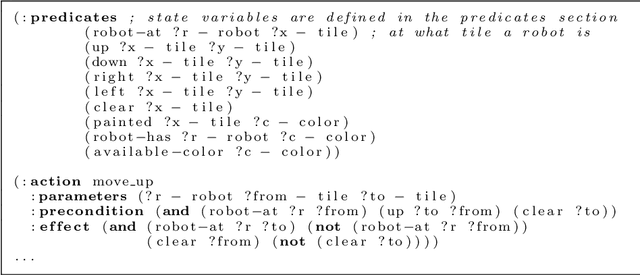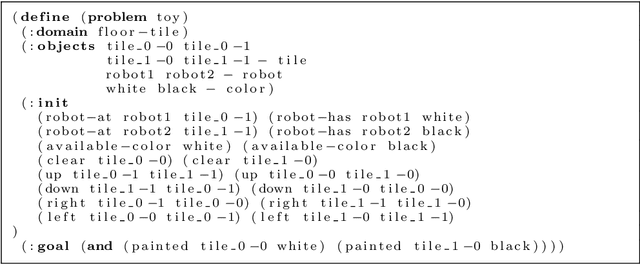Exploring Instance Generation for Automated Planning
Paper and Code
Sep 21, 2020



Many of the core disciplines of artificial intelligence have sets of standard benchmark problems well known and widely used by the community when developing new algorithms. Constraint programming and automated planning are examples of these areas, where the behaviour of a new algorithm is measured by how it performs on these instances. Typically the efficiency of each solving method varies not only between problems, but also between instances of the same problem. Therefore, having a diverse set of instances is crucial to be able to effectively evaluate a new solving method. Current methods for automatic generation of instances for Constraint Programming problems start with a declarative model and search for instances with some desired attributes, such as hardness or size. We first explore the difficulties of adapting this approach to generate instances starting from problem specifications written in PDDL, the de-facto standard language of the automated planning community. We then propose a new approach where the whole planning problem description is modelled using Essence, an abstract modelling language that allows expressing high-level structures without committing to a particular low level representation in PDDL.
 Add to Chrome
Add to Chrome Add to Firefox
Add to Firefox Add to Edge
Add to Edge